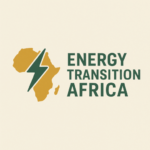Late one evening in Kano, amidst the glow of flickering kerosene lamps, Aisha, a mother of three, clutches her youngest as she steps outside. On the wall of her modest kitchen, a small solar panel leans awkwardly, its wires twisting into a battery box. For her, that small device brought relief from the endless cycle of blackouts. But for many like Aisha, the promise of clean light carries a hidden cost, one that no one seems prepared to pay.
Nigeria is in the midst of a solar energy surge. The numbers are striking: from 179 MW in 2023, projections show capacity could leap to 255 MW by 2025, 678 MW by 2030, and reach 1,500 MW by 2035. This growth is hailed as a clean energy revolution. But behind the glow of solar panels and the hum of inverters lies a mounting problem: solar e-waste in Nigeria.
A Bright Future With a Dark Underside
Solar energy has transformed lives across Nigeria. From rural villages in Katsina to bustling districts of Lagos, panels now power clinics, light up classrooms, and help traders extend their working hours. For communities historically left in the dark, this is nothing short of revolutionary.
Yet every solar panel and battery has a lifespan. Solar home systems typically last between 5 and 10 years, lithium-ion batteries between 5 and 7 years, and lead-acid batteries even less. As the first waves of installations begin to age, the question becomes: what happens next?
AllOn, an off-grid energy impact investor, estimates that solar waste in Nigeria will grow from 3.3 million kilogrammes in 2021 to a staggering 60.3 million kilogrammes by 2040. Without formal collection and recycling systems, most of this waste will end up in open dumps or be broken down by informal scavengers. Panels contain metals like lead and cadmium; when damaged or burnt, these release toxins into soil and air, threatening health and ecosystems.
Batteries: The Silent Polluters
The real danger lies in the batteries. Aisha’s battery, a lead-acid type she purchased cheaply from a nearby market, will likely die within a few years. Without clear disposal routes, such batteries often leak acid, contaminating groundwater, or are dismantled without safety gear, exposing handlers to dangerous substances.
Informal recycling is a growing reality. In many Nigerian cities, waste pickers dismantle dead batteries for scrap value, discarding the rest. This unregulated trade fuels environmental degradation and exposes entire communities to hazardous materials. It also undermines the very principles of a just energy transition.
Policies That Haven’t Caught Up
Nigeria’s Renewable Energy Master Plan (REMP) sets out ambitious targets, including 10% of electricity generation from renewables by 2025. Yet while deployment is rising, regulation for end-of-life management lags far behind.
Extended Producer Responsibility (EPR), a global best practice where manufacturers are responsible for the lifecycle of their products, is barely enforced in the solar sector. The result? Importers, distributors, and users operate in a system where it is cheaper to ignore the waste problem than to solve it.
The solar e-waste problem is not unique to Nigeria. Across Africa, from Kenya to South Africa, countries are grappling with the challenge of aligning renewable energy deployment with sustainable waste management. But Nigeria, with its booming population and fast-growing energy demand, risks becoming the epicentre of an e-waste crisis.
Innovators Leading the Way
Some start-ups are trying to change the picture. SLS Africa, a recycling enterprise, redirected over 100 tonnes of battery waste from landfills in 2023, expanding operations to Nigeria. QuadLoop, a Lagos-based company, turns discarded solar components into functional products like energy-efficient lamps. These examples prove solutions exist. But without scale and state backing, they remain isolated successes.
This is where policy and innovation must meet. Imagine if Nigeria created green enterprise zones dedicated to renewable energy recycling, providing tax breaks, technical assistance, and market access to companies turning waste into resources.
What a Just Transition Looks Like
A just energy transition in Nigeria cannot simply mean replacing oil rigs with solar farms. It must mean designing systems that are fair, inclusive, and sustainable at every stage. That includes:
- Formalising Collection Systems: Setting up designated e-waste drop-off points nationwide.
- Strengthening Regulation: Enforcing EPR in the solar sector.
- Educating Consumers: Running public campaigns on safe disposal.
- Supporting Innovation: Financing start-ups working on solar waste solutions.
- Regional Collaboration: Learning from countries with established e-waste recycling programmes.
A Global and Local Imperative
This is not just a Nigerian issue; it is a global challenge. The International Renewable Energy Agency (IRENA) predicts that by 2050, cumulative solar panel waste worldwide could reach 78 million tonnes. If Africa can pioneer sustainable solutions now, it can avoid repeating the mistakes of industrialised nations.
In the Nigerian context, tackling solar e-waste could also generate jobs. Repair and refurbishment industries can extend the life of panels and batteries, while recycling plants can feed materials back into manufacturing. It is both an environmental and economic opportunity.
Aisha’s Tomorrow
Back in Kano, Aisha doesn’t think about e-waste. She thinks about keeping the lights on for her children’s homework, about being able to power a small fan on a hot night. But her battery’s ticking clock means that in a few short years, she could be left with a toxic, useless object.
The responsibility for preventing that scenario lies not with Aisha, but with the policymakers, investors, and industry players driving the solar boom. Solar e-waste in Nigeria is a problem that can be solved, but only if it is addressed with urgency and foresight.
Conclusion: Lighting Without Shadows
Nigeria has a chance to lead Africa in building a renewable energy sector that is both green and clean, from cradle to grave. The alternative is a future where the promise of solar power is dimmed by mountains of toxic waste.
For Aisha and millions like her, the measure of progress will not just be in megawatts installed, but in whether the light they enjoy today leaves no shadows tomorrow.

